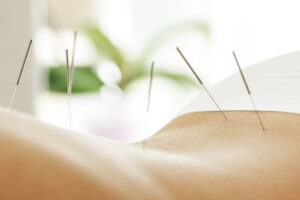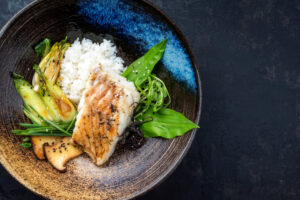WHY “MODERN” MEDICINE IS ACTUALLY ANCIENT
Eastern Medicine’s Revival

Growing up in societies with a western mindset can make it difficult to understand and accept alternative practices, like acupuncture or herbal remedies, which are rooted in Eastern medicine. But that’s all changing. As chronic conditions and a quest for a healthier everyday life push Westerners to search for alternative options to improve their quality of life, what they find is Eastern medicine. It’s focus on preventative and comprehensive health and wellness are all the rage, but it’s nothing new.
Eastern Medicine Has Been Around Longer Than Western Medicine
 The history of medicine is stodgy and boring, so we’re not going there, but it’s important to note that eastern medicine and Eastern medicine has been around longer than its Western counterpart.
The history of medicine is stodgy and boring, so we’re not going there, but it’s important to note that eastern medicine and Eastern medicine has been around longer than its Western counterpart.
For example, the Greek father of medicine, Hippocrates, dates back to 460 BC, whereas the earliest written records of Chinese medicine date back some 3,000 years. While it’s not necessarily important who came first, the point is that eastern medicine is a studied art with its own rich history to draw from.
Why Westerners Are Finally Buying Into Eastern Medicine
First of all, it’s important to note that there’s no superior method when it comes to health and wellness. Western medicine has its place, as does Eastern medicine. But not everyone is keen on prescription drugs or the western school of thought when it comes to treating common, recurring symptoms.
In search of alternative medicine, many westerners are giving Eastern medicine and Traditional Chinese Medicine (TCM) a shot, not because it’s the flavor of the week, but because it has real health benefits.
1. Eastern Medicine Advocates for Lifestyle Changes Over Quick Remedies
 Check out this ancient Chinese proverb: “He that takes medicine and neglects diet, wastes the skills of the physician.” It highlights why so many Westerners are falling for TCM. Depending on the condition, drugs can be a quick fix rather than a long-term cure.
Check out this ancient Chinese proverb: “He that takes medicine and neglects diet, wastes the skills of the physician.” It highlights why so many Westerners are falling for TCM. Depending on the condition, drugs can be a quick fix rather than a long-term cure.
To truly overcome certain health issues, you need a lifestyle change — not just another pill. The alternative approach of TCM and eastern medicine typically calls on the patient to make such changes in their life if they want to see results. Rather than taking pills for depression for instance, your TCM practitioner may recommend herbal formulas before or after meals, or replacing that soda at lunch for a warm cup of tea instead.
Theoretically, a positive change in your lifestyle, such as an improved diet, will have a ripple effect on your mind, bringing balance and a sense of calm that can do just as much for your nerves (or more) as a strong cocktail or anti-anxiety medicine.
2. Acupuncture and Alternative Therapies Have Actual Health Benefits
 It sounds cliche, but acupuncture is what most of us think when we hear the words “Chinese medicine.” The fact is, acupuncture — and its sister therapies, like auriculotherapy, moxibustion, and cupping therapy, to name a few — have actual health benefits.
It sounds cliche, but acupuncture is what most of us think when we hear the words “Chinese medicine.” The fact is, acupuncture — and its sister therapies, like auriculotherapy, moxibustion, and cupping therapy, to name a few — have actual health benefits.
Several studies have shown that acupuncture actually eases chronic pain, such as low-back pain, neck pain, and even knee pain; it’s also known to relieve headaches and other conditions.
3. Herbal Remedies Come in a Variety of Forms
 Another exciting aspect of TCM and eastern medicine is herbal remedies. There are so many types of natural herbs available that can help with a host of conditions, ranging from chronic pain to depression and anxiety.
Another exciting aspect of TCM and eastern medicine is herbal remedies. There are so many types of natural herbs available that can help with a host of conditions, ranging from chronic pain to depression and anxiety.
TCM practitioners recommend teas, tinctures and herbal concoctions based on your symptoms, and you’ll quickly learn that there’s an abundance of remedies out there in a variety of forms.
For example, you can buy herbal remedies as granules that mix with your water or tea, or you can buy them in a pill form so they’re easier to swallow. If you’re feeling a bit extra, you can even buy herbal cacao powder! What’s not to love about that?
4. You’ll Experiment With New Foods and Diets
 This may echo the first tip slightly, but making lifestyle changes often requires you to swap out your old diet for a new one. The more experienced you become with eastern and Chinese medicine, the more you realize just how important diet is — and it’s not just a matter of carbs and calories.
This may echo the first tip slightly, but making lifestyle changes often requires you to swap out your old diet for a new one. The more experienced you become with eastern and Chinese medicine, the more you realize just how important diet is — and it’s not just a matter of carbs and calories.
Eastern medicine specifically goes so far as to associate certain moods and elements with certain foods. For example, raw foods and veggies are considered “cool” foods, which are fine in small quantities to combat summer heat, but may cause “dampness” to build up in the body, which can cause colds and flu. From a TCM perspective, the way to consume such foods would be to cook them in a soup rather than eat them in a salad.
This concept is unique for Westerners, as we tend to eat what we want despite the season or what our bodies may be telling us. As you get more familiar with Eastern medicine’s approach to eating, you’ll find you’re eating more healthy fatty foods, more vegetables, and more Asian cuisine.
5. You’ll Feel More Cultured to Boot
Lastly, TCM and eastern medicine offer you a chance to change your perspective. While you probably won’t be inspired to learn Mandarin (but we’re not stopping you), you will learn more about important customs like drinking tea or even Tai Chi and Qigong exercises. These practices have been around for centuries, and you’ll pick up on the rich traditions behind them as you learn.
As Westerners, these practices are foreign and a bit unusual, so they push you outside of your comfort zone, which can make you a more well-rounded person at the end of the day.
Do you have any other TCM concepts you love? Feel free to drop them in the comments below!
Comments (0)
Leave a reply
You must be logged in to post a comment.




